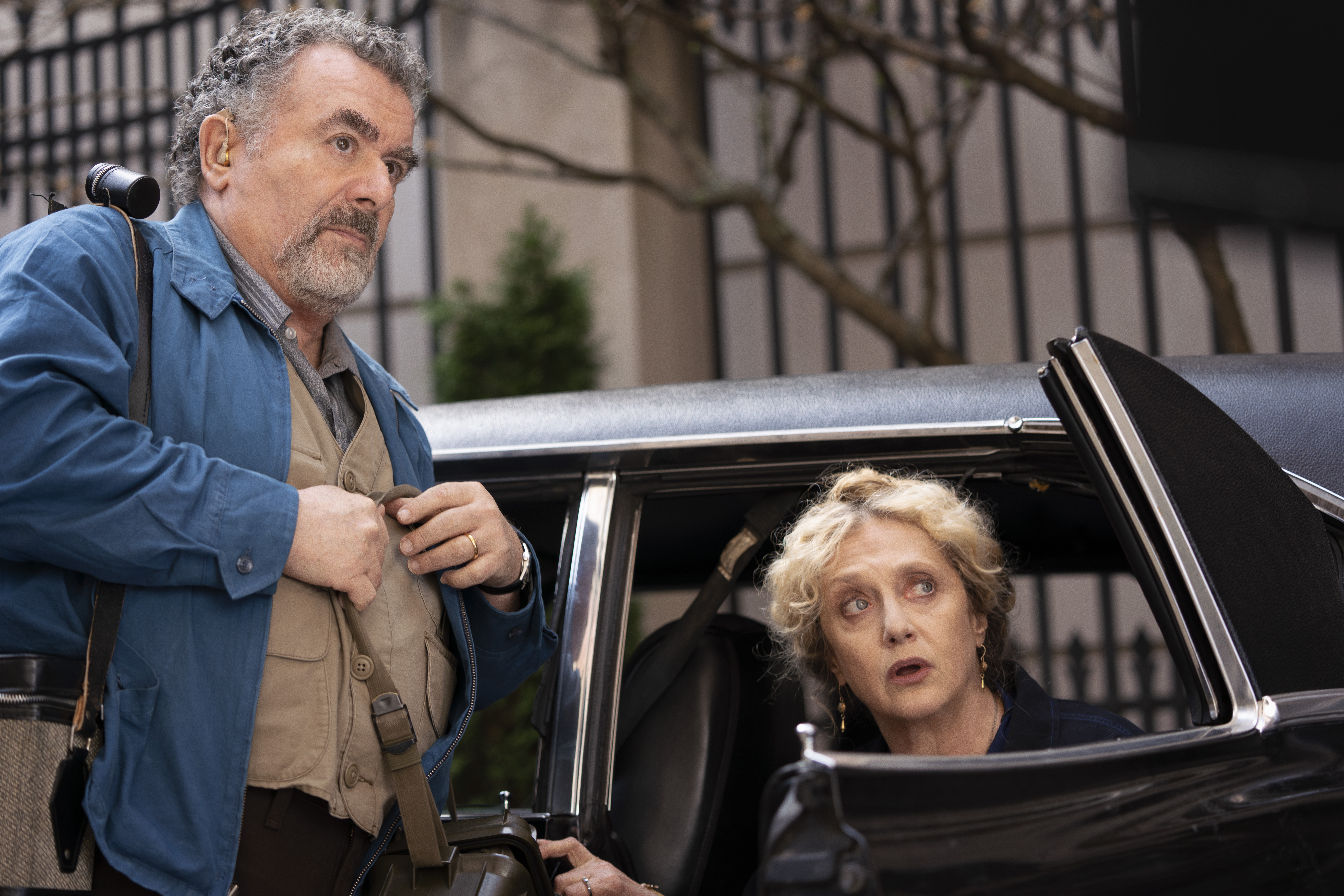In ‘Hunters,’ Revenge Against Nazis Is Messier Than You’d Think
Credit to Author: Colin Joyce| Date: Mon, 24 Feb 2020 18:16:15 +0000
To Jonah Heidelbaum, the protagonist of the Jordan Peele-produced Amazon show Hunters, the Nazi-killing feels glamorous, at least at the beginning. Fresh off the cathartic, messy stabbing of a sadistic concentration camp guard responsible for the murder of his grandmother, he meets a ragtag team of traumatized war veterans, washed-up actors, holocaust survivors, intelligence officers, and radical activists—including a rich old man played by Al Pacino—who've made it their life's work to track down and eliminate the Nazis who've gone into hiding around the United States in the decades following World War II. It's a setup perfect for a pulpy B-movie, which Jonah—a stoner who works at a comic shop in 1970s New York City—seems to recognize immediately.
In his head, he envisions a grindhouse-y movie trailer for his new group of friends, who each deliver justice to evil men in grimy technicolor. At the end of his daydream, he imagines his own role in the crew: "the codebreaker." Hunters often echoes Jonah's vision, but its meditations on the morality of revenge are much sloppier than its comic book trappings might suggest.
Like Quentin Tarantino's recent run of revenge flicks, there is a deliberate coolness to Hunters' action. The violence is gratuitous, yet stylish; upsetting, but in a way, you're meant to cheer along too. A fair amount of screentime is devoted to things like a broken broom handle driven through a woman's throat, a snorkel used to suffocate a man, an old woman's desperate attempts to escape the poisonous gas filling the enclosed shower in a condo in Florida. No show since Dexter has invented such cartoonishly cruel ways for cartoonishly evil men to die.
In these moments, the morality of the show is simple: an eye for an eye until every single Nazi is blind. This is hard logic to argue with. Like Jonah does in early episodes, it's easy to get caught up in the bloody catharsis of it all, in the way same way that other Nazi-disemboweling fiction—like Inglorious Basterds or the more recent Wolfenstein video games—begs you to. This was, apparently, part of the show's creator David Weil's design.
In interviews, he's described his memories of hearing about his own grandmother's time in the Holocaust when he was a child. Because he was so young, he could only interpret them as "comic book stories, stories of grand good versus grand evil." That's what Hunters tries to be—a superhero tale about a group of well-intentioned civilians who will do what the United States government will not, and eliminate one of our planet's greatest evils. The show is loosely based on a true story, and it should be noted that its fabulism has already drawn some criticism. The Auschwitz Museum took particular issue with one particularly cruel scene—a spokesman told Associated Press that "creating fiction that distorts the history of this real place is disrespectful of the people who suffered here."
Hunters has grand ambitions, which sometimes results in moments of emotional resonance, but mostly gives the show a strange tonal whiplash. The same episode where Jonah envisions the stylized intros of his compatriots ends with him wracked with guilt and trauma, with a warning from a Nazi record producer (and an unexpected gunshot) ringing in his ear as he desperately tries to scrub the memories of his group's latest kill from under his cuticles. In addition to its over-the-top violence, Hunters also wants to meditate soberly on the nature of evil and the necessity of revenge. Weil has also said that the show is meant to explore a more existential question, "If we hunt these monsters, do we risk becoming them ourselves?"

The show doesn't seem to offer a definitive answer to this question, which undercuts the power of its best moments. It offers these moments of gory excess, then Jonah's queasiness implicitly shames you for enjoying them. He slowly comes into his own as an assassin over the first half of the season, but he still often hesitates and hedges in a way that his comic book heroes don't. Batman doesn't often consider the humanity of the supervillains he dispatches, he just does what needs to be done.
The real world is complicated, sure, but Hunters is at its best when it pretends that it isn't, when the characters are unleashed to enact gleeful sadism on men and women who deserve it. The problem is that it often also wants to make statements about the weight of trauma and the dark echoes of the Holocaust that continue to shake families generations later. It's a real tightrope walk to try to do that in a show that also wants to viewers to luxuriate in stoned dance sequences, fourth-wall-breaking infomercials, and sadistic torture scenes.
There are almost two shows in Hunters competing for attention, one that delights in murder and makes a spectacle of violence, and one that considers heavy philosophical themes through grayscale flashbacks to the horrors of the Holocaust. It's hard to imagine how Hunters might eventually reconcile them, but they may get to a point where it all makes sense. Until then it's a bit of a mess, but killing Nazis was always going to be messy business.
This article originally appeared on VICE US.